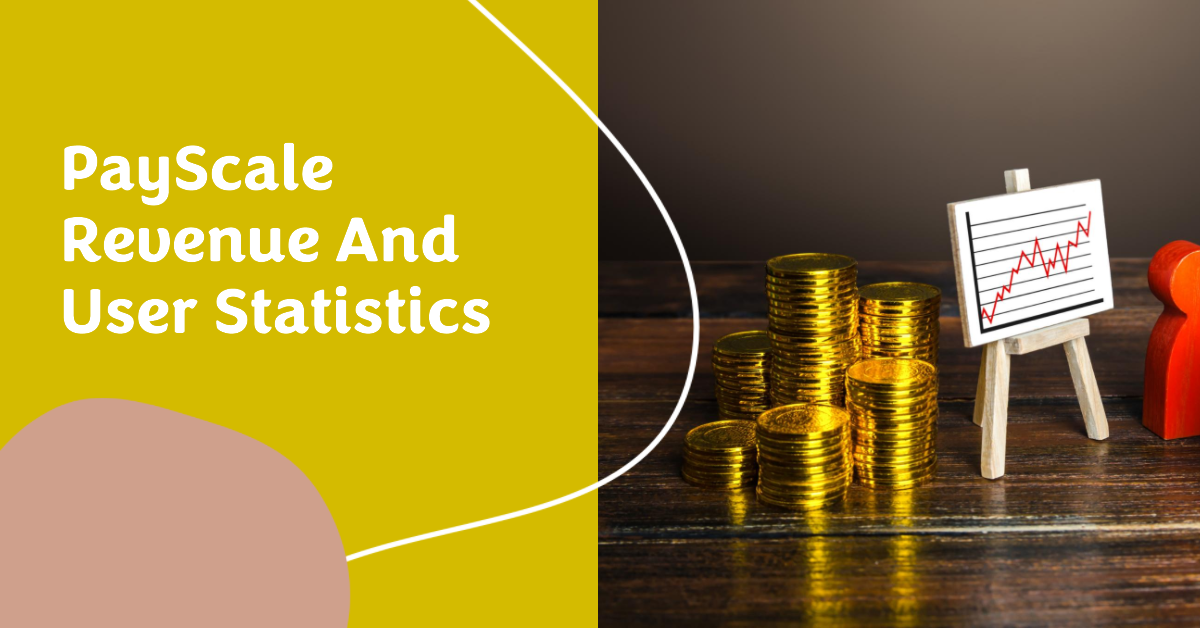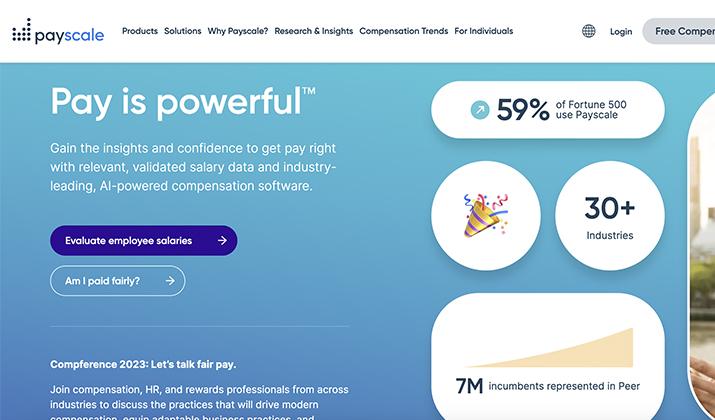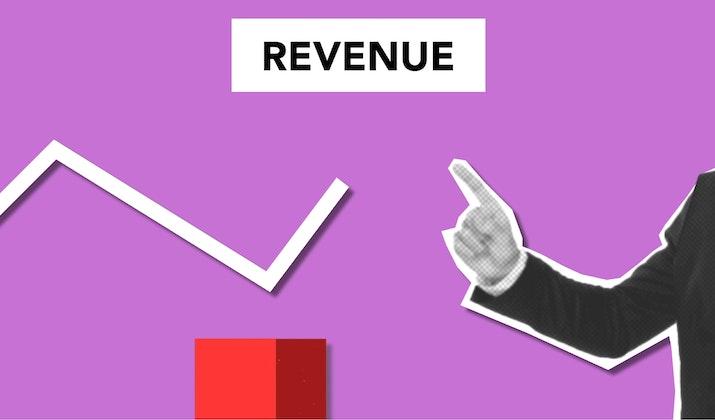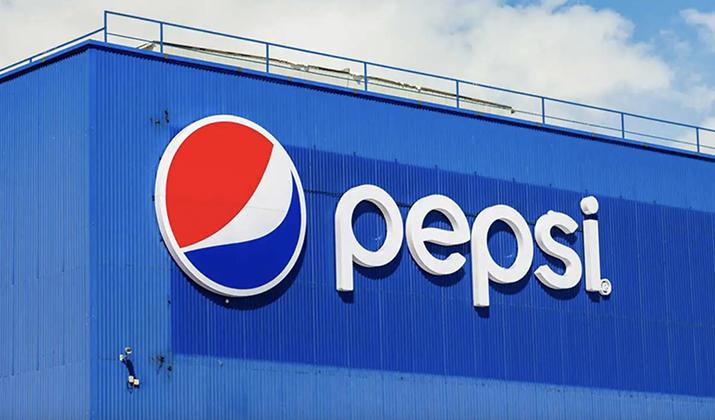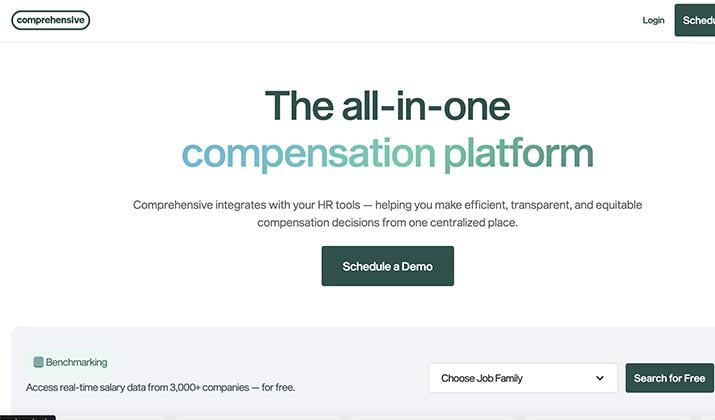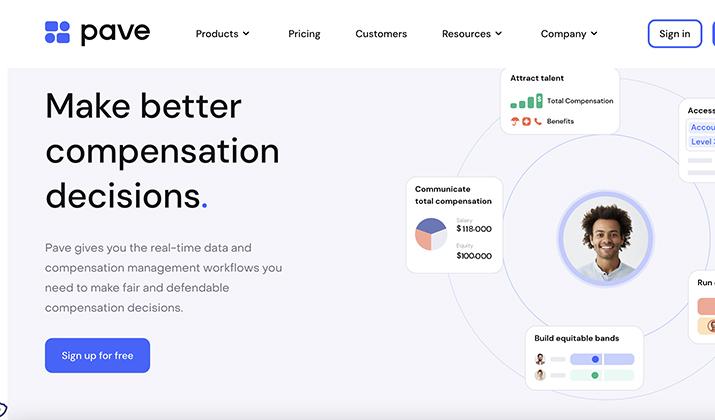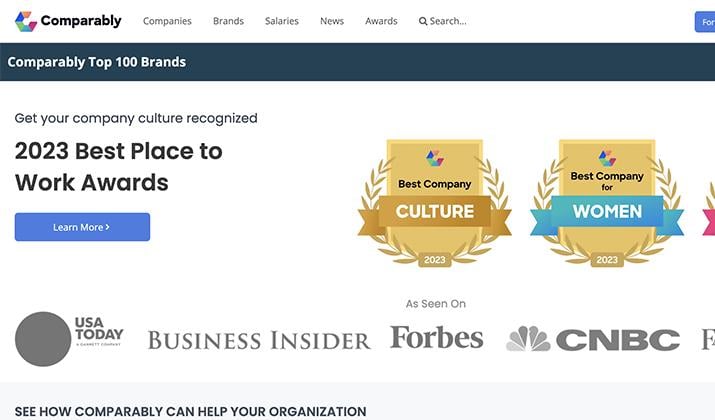PayScale is a compensation software and data company that provides employers with means to manage remunerations for their employees while allowing workers to understand their worth in the job market.
PayScale is very important considering how many workplaces usually dissuade employees from talking about their salaries. This has been a leading cause of high pay disparities among workers who may be doing the same kind of work without knowing they’re being paid less.
PayScale provides detailed information about average salaries from different parts of the world, giving you a sneak peek of what your counterparts could be making elsewhere.
In this article, we will explore major PayScale revenue and user statistics to see how influential the software and data company is to the job market.
If you’re a prospective job hunter looking to have all the facts in hand, this is for you.
Also Read: Indeed Revenue & User Statistics
PayScale History and Background
Joe Giordano and John Gaffney, two brilliant businessmen who understood the need for openness in wage and compensation discussions, founded PayScale in 2002.
They were driven by the need to close the knowledge gap that frequently prevented both job seekers and employees from knowing what fair and competitive compensation was all about.
The founders’ goal was to build a platform that would equip people and organizations with precise and constantly updated wage data.
Over the years, PayScale has developed into a reputable data source, acting as a reliable resource for millions of users, ranging from HR specialists to regular employees and top executives.
So how exactly has PayScale changed the dynamics of fair compensation in the modern job market? Here’s a quick breakdown of the key fundamentals it has helped enforce in the hiring process.
- Salary Transparency: Salary information on PayScale enables people to negotiate better pay deals and make educated career decisions. It makes sure that workers aren’t unfairly underpaid or abused by businesses.
- Recruitment and Retention: Employers profit from PayScale information since it enables them to recruit top talent and keep important staff members. A critical component in luring qualified individuals is offering competitive remuneration packages.
- Industry Benchmarking: Businesses may stay competitive and make the required modifications by comparing their compensation plans to industry norms using real-time wage data from PayScale.
- Market Research: Important salary information from PayScale is used by economists, policymakers, and academics to examine economic trends, gauge wage disparity, and create laws that support a vibrant labor market.
Ready to see some interesting PayScale revenue and user statistics? Let’s take a look.
PayScale Revenue Statistics
1. PayScale’s annual revenue ranges between $164m – $177m in 2022
Photo by Monstera Production/Pexels
PayScale makes about $239,726 in a single day, and this translates to $7.3m per month. Over the years, the company has been bringing in millions of dollars in global revenue ranging between $164m and $177m annually.
With a workforce of a little over 400 employees, this translates to a revenue-per-employee ratio of $211,352.
Also Read: Things That Scare Human Resources
2. PayScale has multiple investors with financing dating back to 2004
Between 2004 and 2011, PayScale has had a series of investments from different financiers which has contributed to its growth.
The highest investment came from Series C which brought in about $10.3m in 2007. There was a $3.2m investment in 2011 and two $7m money injections in 2011 and 2005.
In total, PayScale has had 12 rounds of investments since 2004 raising about $113.59 million in total from 13 known and unknown investors.
Some of the notable investors who have played a huge role in the company’s expansion include Fluke Venture Partners, Madrona Venture Group, Montlake Capital, Sapphire Ventures, Trinity Ventures, and Allen & Company.
Also Read: Best BambooHR Alternatives
3. PayScale has a market cap of over $325 million
Photo by Kindel Media/Pexels
As of 2019, PayScale had a market cap of over $325 million. The company has gone through a number of acquisitions which has pushed up its valuation between 2014 and 2019.
PayScale was acquired by Warburg Pincus on April 24. 2014 in a deal worth $100 million. This acquisition was followed by rapid expansion with the company growing its employee numbers from 100 to 450 and its customer base more than doubling from 3,000 to 8,000 clients, both individuals and companies.
Then in April 2019, PayScale saw another major shift when Francisco Partners increased their majority share in the company, pushing the valuation to $325 million.
4. PayScale has a 0.27% market share
Although efficient and reliable, PayScale only commands a market share of about 0.27% when it comes to payroll and benefits software and services. While this may look small, that translates to a huge number of users.
However, there are other competitors with bigger market shares like Salary.com, Payfactors, Glassdoors, Saba Software, and Betterworks, among many others.
Also Read: Best Personio Alternatives
5. PayScale acquired CURO in 2021
CURO Compensation Ltd. is a pay equity and compensation management technology that helps employers make the most out of their talent investments. It achieves this by providing tools and insights for making fair, equitable, and appropriate compensation decisions.
The acquisition further bolstered PayScale’s ability to provide more detailed compensation data by combining the resources of both companies.
Also Read: Best Greenhouse Alternatives
PayScale User Statistics
Let us look at PayScale user statistics now.
1. There are over 480 companies, including Pepsico, that use PayScale
As of 2023, there are over 480 global companies that use PayScale as a payroll and benefits tool. Some of the major ones include Pepsi, Samsung SDI, Halliburton Company, PVH Corporation, Realty ONE Group, and International Business Machines Corporation (IBM), among many others.
111 of these companies have a global presence with between 1,000 and 4,999 employees each. Another 99 companies have over 10,000 employees each while about 70 are small scale with between 100-249 employees.
Also Read: Best Workable Alternatives
2. Technology and Retail industries are the biggest users of PayScale
Photo by Canva Studio/Pexels
A majority of companies that take advantage of the PayScale software are from the tech industry. This is followed by retail, software, healthcare, manufacturing, engineering, and human resources.
3. Companies in the United States are the biggest users of PayScale
Out of the over 480 companies that use PayScale software, 387 are based in the United States. This represents 76.81% of the total PayScale users and is followed by Canada at 5.31% and the United Kingdom at 4.72%.
Below is a table showing the top seven locations.
| COUNTRY | NUMBER OF COMPANIES |
|---|---|
| The United States | 387 |
| Canada | 27 |
| The United Kingdom | 24 |
| Philippines | 12 |
| India | 9 |
| The Netherlands | 6 |
| Singapore | 5 |
What Are PayScale’s Competitors?
As I mentioned earlier, PayScale isn’t the only player in the compensation data industry. Some of the major alternatives include the following.
1. Comprehensive
Comprehensive was founded in 2021 which makes it a relatively new entrant into the industry. Like PayScale, the platform provides companies with detailed data that guides them in coming up with fair remuneration packages for their employees.
The platform is very secure and with GDPR, SOC 2 Type 2, and CCPA certifications. So the valuable data found on it is well protected.
Check Out: Best Lever Alternatives
2. Pave
Pave is a highly intuitive data-driven compensation platform that rivals PayScale in terms of usability and range of applications. Founded in 2019, Pave has been serving all types of clients in the eCommerce space, social media, and other major industries globally.
Employers and employees can use the platform to attract talent, better salaries, access global benchmarks, and run efficient metric cycles.
3. Comparably
Comparably was founded in 2015 and is a little older than the first two. But just like PayScale, it’s based in the United States and serves clients from all over the globe. It offers job placement services on top of comprehensive data on salaries and company cultures,
Comparably has had 19 investor rounds with over $13.7 million raised in the period it has been active. It has won multiple awards and has a detailed database of compensation info used by many employers and employees.
Wrapping Up
Knowing your worth in the job market is vital and PayScale offers comprehensive insight that every job seeker and employer can benefit from.
The company has been around for a long time and it understands the job market trends better than its competitors.
Hopefully, these stats have given you a clear picture of how important having access to salary data from all over the world is.
